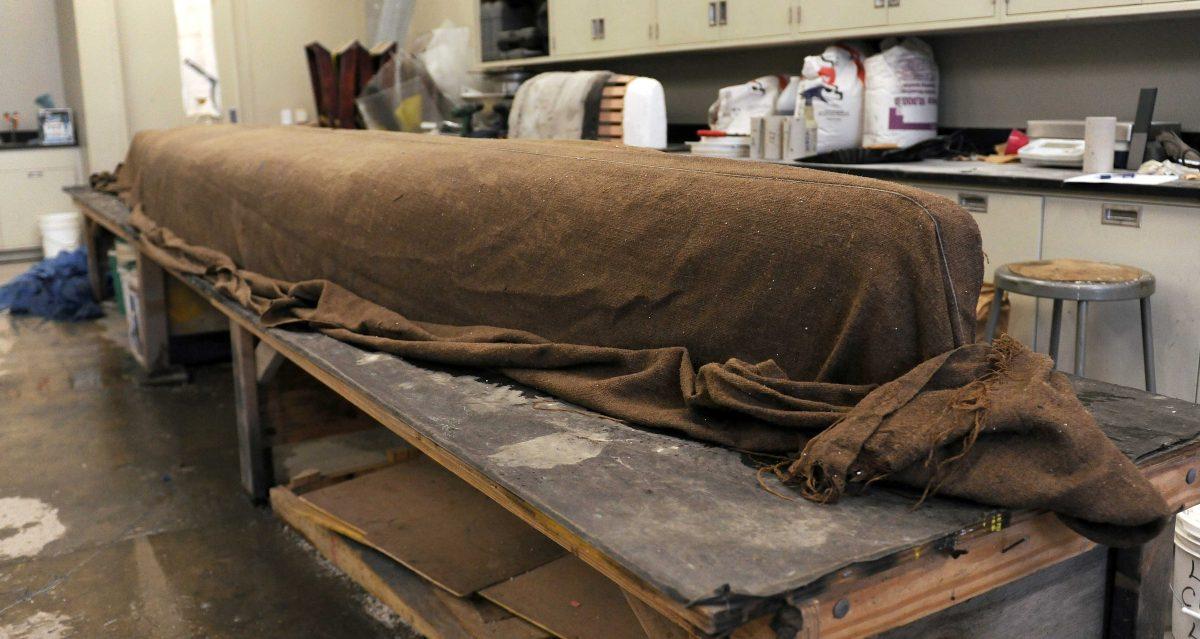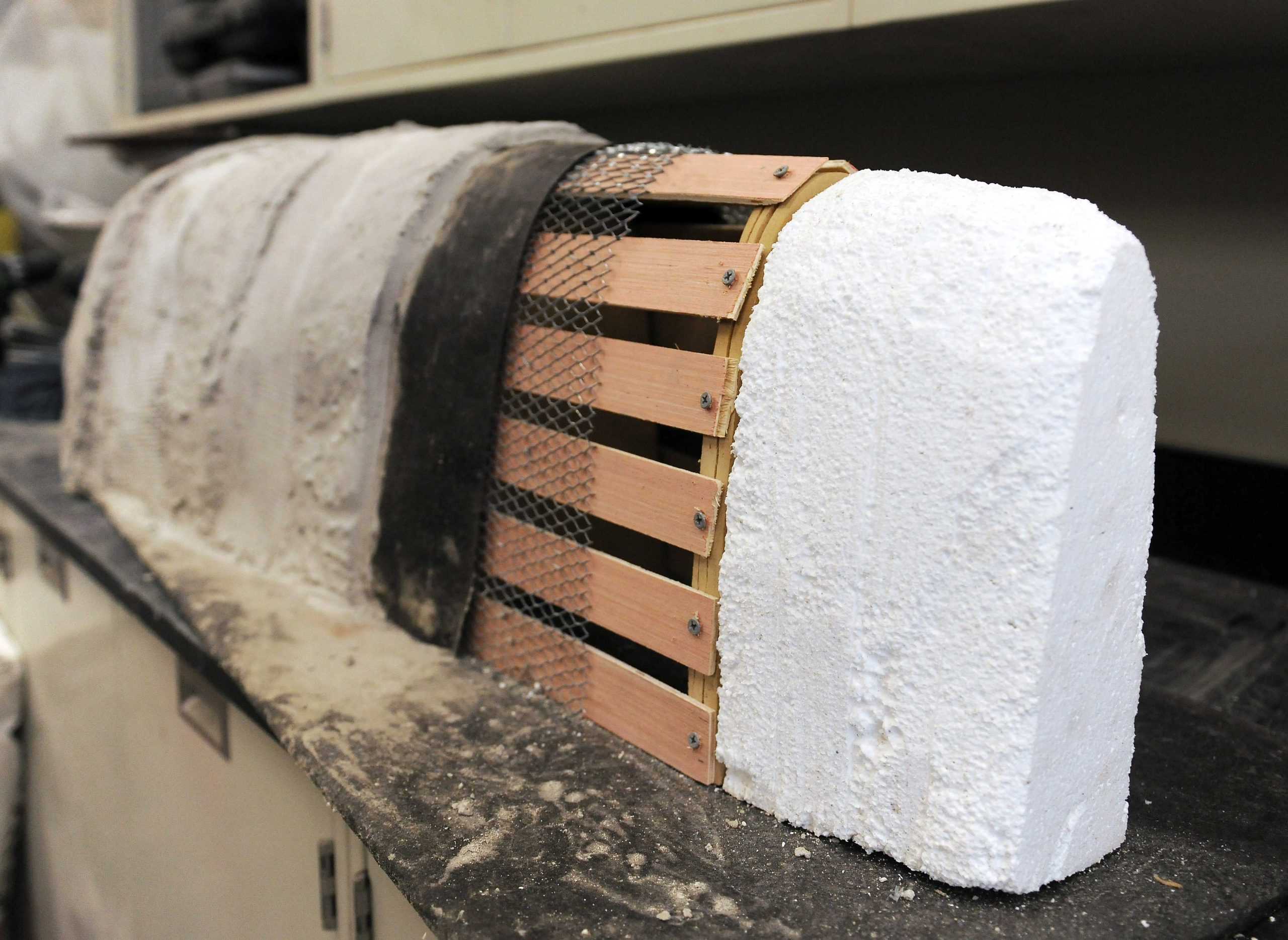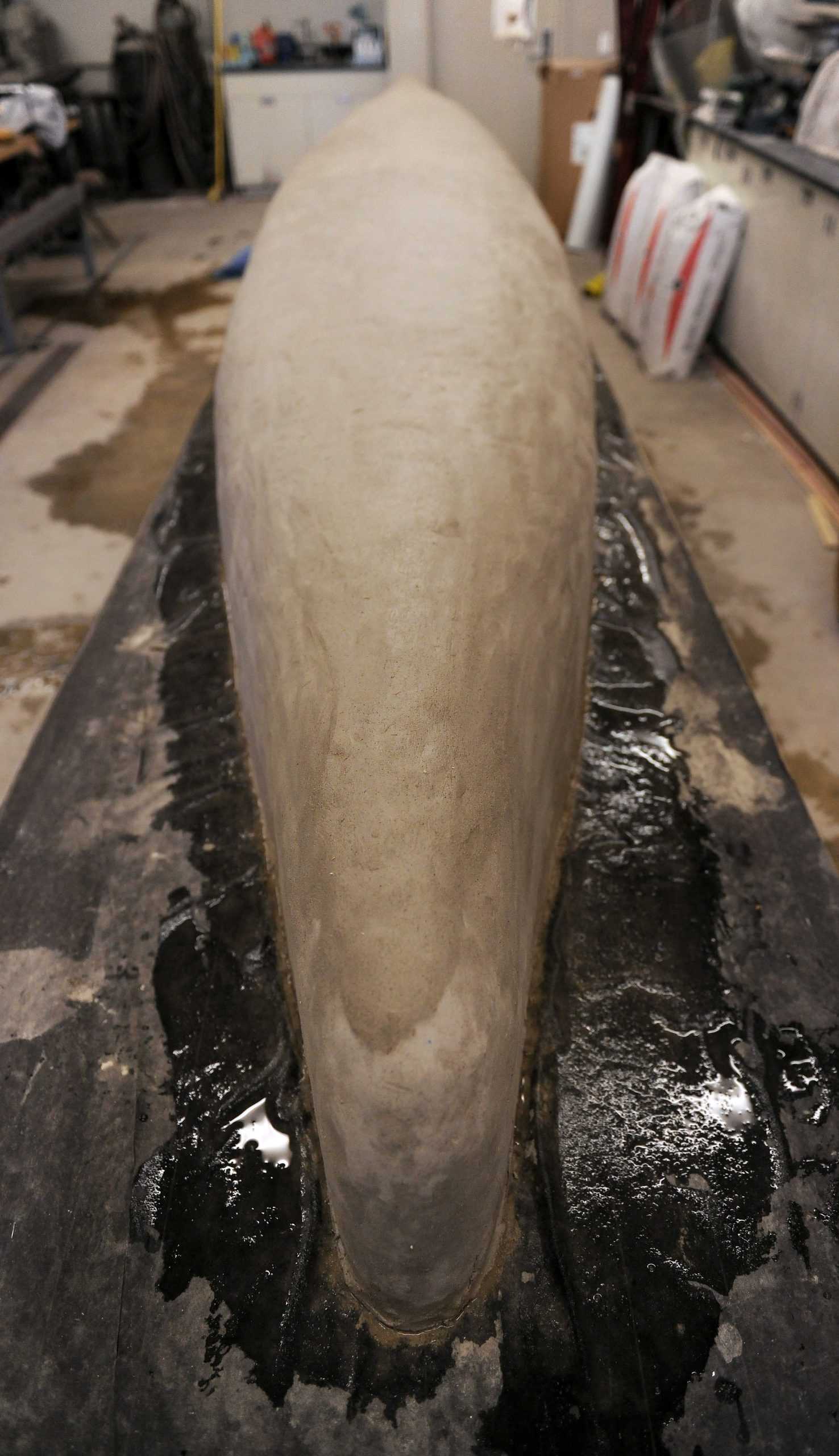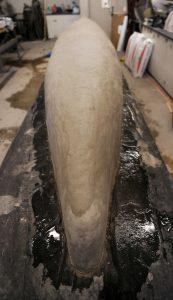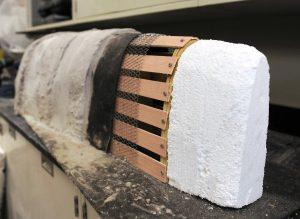Most people think all rocks sink, but civil engineering senior Sean Moore says otherwise.
“With the right mixture, things like concrete can actually float really well,” Moore said.
Moore captains the University’s concrete canoe team, a subdivision of the student chapter of the American Society of Civil Engineers. Every year, the team designs and builds a canoe made of concrete and trains to race it against other concrete canoes in national competitions.
Heavy materials often sink in water, but there are reasons why the canoe competition involves concrete.
According to Moore and co-captain Brendan Coploy, civil engineering sophomore, several aspects of their canoe design take advantage of concrete’s physical properties without sacrificing the boat’s speed or buoyancy.
“The boat is reinforced by tar, wood and steel mesh, so even though the outside is made of pure concrete, the area the concrete actually covers doesn’t make it less buoyant,” Moore said.
The concrete mixture is a custom recipe with reduced density that lends itself to flotation. To demonstrate this point, Coploy dropped a solid cylinder of it into a bucket of water, and it floated.
“We spent a lot of time preparing a lot of mixtures until we got something that worked best,” Coploy said.
Moore said they receive guidance from Tyson Rupnow, a concrete research manager from the Louisiana Transportation Research Center, but most of the work the team does is directed by its undergraduate membership.
“We don’t need to know how to perform every equation, but we definitely have solid backgrounds in math and science, and we use a lot of engineering skills,” Moore said.
In fact, according to Coploy, the American Society of Civil Engineers requires the boats be made from concrete because of its importance in the professional world. Students compete to construct the best boats possible so they can develop skills to make themselves competitive for jobs after graduation.
Moore said the competition is based on both academic knowledge and demonstrable skill. Teams are judged on the structure of an explanatory paper, oral presentation, design of the final product and how well they perform against other teams in a series of five co-ed races.
The team will compete in the Deep South Conference on the weekend of March 27 at the Christian Brothers University in Memphis, Tenn. Thirteen schools from Arkansas, Mississippi, Louisiana and Tennessee will convene at the conference, and the winning team will compete in a national contest in Reno, Nev. on the weekend of June 14. Attending teams will include Mississippi State University, the University of New Orleans and Louisiana Tech University — the Baton Rouge team’s biggest rival.
“I’m not saying the reason we’re going is to beat Louisiana Tech, but we’re going to beat Louisiana Tech,” Moore said.
The team meets at least once a week to design and build different parts of the boat. Coploy and Moore spend 10 hours a week in the engineering labs across from Patrick F. Taylor Hall tweaking the canoe. They hold weekly rowing practices on the University Lakes in preparation for the competition’s racing events.
“It’s a real time investment, but we love every minute of it,” Moore said.
“With that right mixture, things like concrete can actually float really well.”
University concrete canoe team to compete against rivals
By Panya Kroun
February 11, 2014
A burlap blanket is wet twice a day to help with the curing process for the concrete canoe for the American Society of Civil Engineerings’ Deep South Regional Student Conference in Memphis, Tennessee in March.


